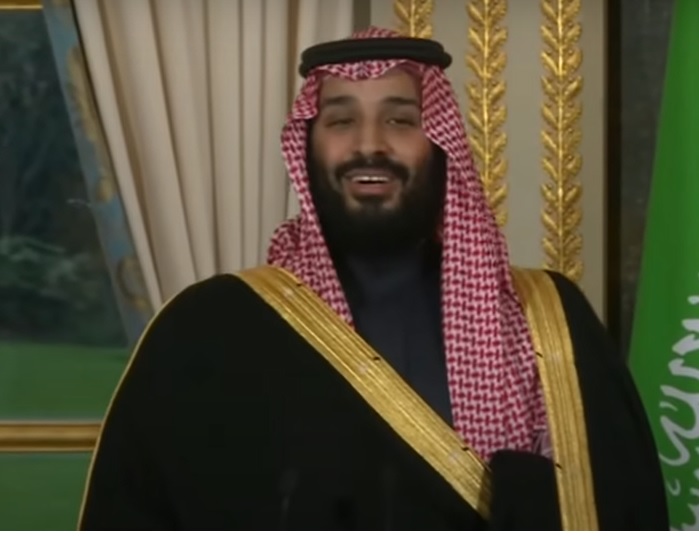According to Hamas sources, the visit of the Hamas delegation to Saudi Arabia during the month of Ramadan, after a gap of many years, was very important and its positive results will be revealed in the coming weeks.
The Saudi authorities will soon begin to gradually release the dozens of Hamas operatives detained in the Saudi prison after they were convicted of smuggling money and laundering it for the military wing of Hamas in the Gaza Strip.
The visit of the Hamas delegation to Saudi Arabia marks the opening of a new chapter in the relations between the movement and the Saudi royal house, as you may remember that the Hamas movement is defined in Saudi as a terrorist organization.
Saudi Arabia is proceeding very cautiously in its new relations with the Hamas movement, the visit of the Hamas delegation to the kingdom was defined as a religious visit for the purpose of the small pilgrimage called Umrah in Arabic.
Hamas was satisfied with the change in Saudi Arabia’s position and the delegation that went there was composed of all the movement’s senior leaders: Ismail Haniya, Khaled Mashaal, Saleh Al-Arouri and Musa Abu Marzouk.
This shows the importance that the Hamas leadership attaches to the renewal of relations with Saudi Arabia, which is the leader of the Sunni world.
However, Saudi Arabia is careful not to damage the position of the Palestinian Authority, which is why Saudi Crown Prince Mohammed bin Salman made sure to invite PA Chairman Mahmoud Abbas to Riyadh, two days before the Hamas delegation arrived in Saudi Arabia.
Saudi Arabia shows disillusionment in the face of the processes affecting the Middle East and the international arena and is trying to adapt to the new situation and maintain its security and the future of the kingdom, Crown Prince Mohammed bin Salman wants to secure for himself the role of the next king of Saudi Arabia after his elderly father King Salman bin Abdulaziz passes away.
Saudi Arabia wants to take a more influential position on the Palestinian arena and not leave the influence on the Hamas movement only to Iran, therefore it opens a new page with the Hamas movement, sources in Hamas claim that the Saudi crown prince understands that the Hamas movement is the rising force in Palestinian society in view of the weakness of the Palestinian Authority and he wants to influence the Palestinian positions.
Mohammed bin Salman realized that the arrest of dozens of Hamas operatives in Saudi Arabia on the charge of smuggling money to the Hamas movement in the Gaza Strip did not weaken the movement but only strengthened its position on the Palestinian street.
The Saudi crown prince is disappointed that the new right-wing government in Israel is not ready to adopt the Arab peace initiative based on the Saudi peace initiative of King Abdullah from 2002, Israel is not ready to pay the Palestinians any price in exchange for a normalization agreement with Saudi Arabia, the Saudi crown prince is also disappointed that Israel is not ready to give Saudi Arabia ” foot hold” on the Temple Mount.
The recent events during the month of Ramadan on the Temple Mount only strengthened Jordan’s position as the guardian of the holy places in Jerusalem.
Despite the arrest of dozens of its operatives in Saudi Arabia, the Hamas movement was careful not to attack the Saudi royal house and worked behind the scenes to bring about their release.
There are of course other reasons for the change in Saudi Arabia’s attitude towards the Hamas movement.
- The rapprochement of Saudi Arabia with Iran and the signing of the agreement on the renewal of diplomatic relations between them, the Hamas movement is an ally of Iran.
- Pressure from the Houthi rebels in Yemen on Saudi Arabia to release the Hamas operatives held in a Saudi prison, Saudi Arabia is negotiating with the Houthi rebels loyal to Iran to end the war in Yemen.
- The weakening of the position of the US in the Middle East and the entry of Russia and China into the vacuum that the USA left behind.
Senior officials in the Palestinian Authority estimate that Saudi Arabia is increasing contacts with the Palestinians in an attempt to gain greater influence on the Palestinian positions ahead of the Arab summit conference to be held soon in Riyadh.
Crown Prince Mohammed bin Salman’s courtship of the resistance axis led by Iran, including the Hamas movement, worries Israel and the US, who were surprised by the agreement between Saudi Arabia and Iran.
The head of the CIA, William Burns, visited Saudi Arabia about two weeks ago and expressed Washington’s displeasure with this move to senior officials in the royal house.
Senior security officials in Israel say that Crown Prince Mohammed bin Salman has come to the conclusion that he can no longer trust the Biden administration when it comes to protecting the Saudi regime from Iran and has chosen to move to the other camp to secure his regime in the coming years.
The question is how Saudi Arabia’s rapprochement with Iran and Hamas will affect its relations with Israel. Senior political figures in Jerusalem estimate that this may slow down the normalization process of Saudi Arabia with Israel because Saudi Arabia will be under great pressure from the axis of resistance led by Iran to distance itself from Israel.




